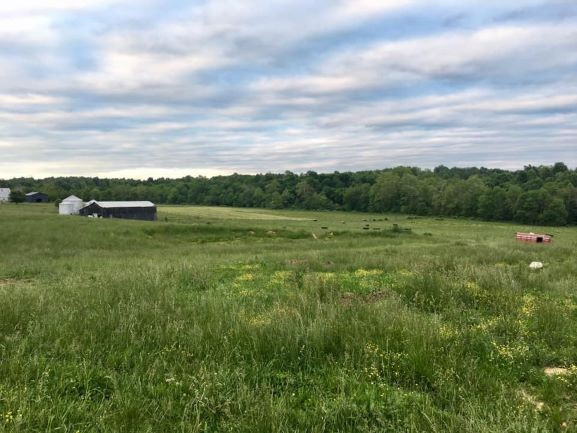All About Our Cattle
posted on
November 30, 2020
All About Our Cattle!

You could say that cattle is what started me down the path to Cedar Valley Farms. Some of my fondest memories I have are from being around the cattle herd with my Dad and Papaw. I got bit with the farming bug at an early age...Papaw grew up with cattle, Dad grew up with cattle, and I grew up with cattle. I've know since as long as I could remember that raising cattle is what I wanted to do with my life.
Growing up you could find me in the fields with my Papaw and Dad. At about thirteen, Papaw thought it was time for me have my own little cattle herd so he bought me a few heifers to help me get started. I quickly learned about responsibility and what it was like to have something that depends on you to survive. With Papaw and Dad's help, I slowly grew my herd throughout middle and high school and became extremely proud of MY small herd. After graduation I got the great idea to raise some Holstein bottle calves to make some quick pocket money. I bought about 20 because I thought if I'm going to have to feed one then I might as well make it worth it. Needless to say. it didn't take me long to realize I was in over my head. Those 20 bottle babies needed lots of attention and feeding twice a day. I'd wake up before the sun rose to make 20 bottles, have to feed them one at a time, and do it all again before the sun went down. But, I wouldn't have changed those early morning and late nights in the barn for anything in the world.
During college I spent the weekends coming home to the farm. After all, my responsibilities didn't go away just because I did. My Dad managed my herd during the weekdays and I came home on the weekends to help out as much as I could. After graduating from WKU in the spring of 2015 I came back to the farm and expanded my herd to about 45 cows. This was about the same time that the idea of Cedar Valley Farms became a reality. I knew that I wanted to go down a different path than only commercial/commodity agriculture, so I started dabbling into grass finishing a small portion of our calves to sell directly to consumers.

So, Why Grass Fed / Grass Finished?
Cows are unique because they are one of the only farm livestock animals that are herbivores. This means that they can solely survive and thrive on forages alone. Our grass finished beef are raised on rotated pasture lands and are fed an all grass, or legume foraged diet, throughout their entire lives. This means that our cattle are not fed grains to fatten them before harvest. Animal, consumer, and soil health are three major reasons why I have chosen to raise and market my cattle as a grass fed / grass finished. When cattle are raised in a commercial feedlots it can become a breeding ground for animal disease. Diseases are typically treated with antibiotics, which is a practice that most consumers want to stay away from when selecting products to feed their families. When cattle are rotated frequently outside on pasture it disperses nutrients across the fields which increase soil fertility. When raised right, unlike in a feedlot environment cattle can play an important roll in the environment by recycling nutrients and carbon from the air and putting it back into the soil via through the plant roots creating a sustainable system that will improve pasture lands as well as the environment. Our herd benefits from the increase in soil fertility because our grasses grow back faster, denser, and healthier for the cows to eat.


Future Goals
The management needs of grass fed / grass finished cattle can be extensive. Our herd needs to be frequently rotated to new pasture which requires extensive paddock management. I invested quite a bit of time, money, and labor this past summer and fall fencing on the farm to better manage how we move our cattle. Our farm went from three large paddocks to about twelve (which can even be divided further) to help meet the needs of our rotational grazing model. Instead of building of fences with traditional wooden posts, I used fiber glass fence posts that conduct electricity without the use of insulators. Unlike wooden fence posts that could potentially rot, these fiber glass will (hopefully) outlive me. With our paddocks ready to rotate, our future goals include planting our fields with forages such as clover, orchard grass, and turnip that will increase our cow's productivity and raise happy, healthy calves.








